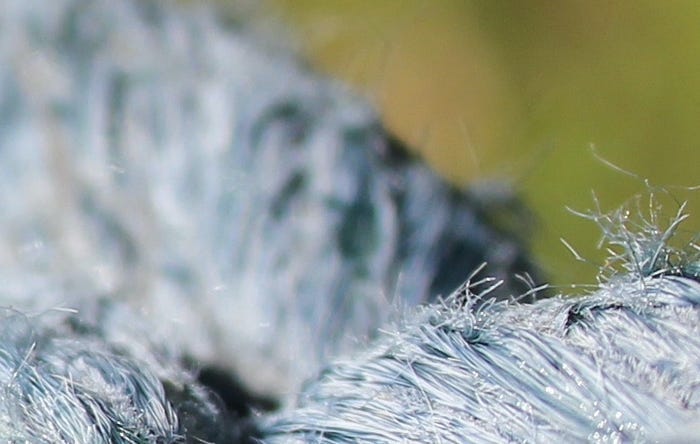Intellectual Curiosity As an Act of Love
Practicing intellectual curiosity for the humble roots of things and the discarded stories can be an act of love.
Museums, documentaries, and travel literature all highlight the Greats, the Firsts, the Earliest’s, the Originals, the Movement-Makers: this famous person slept here, ate here, and played music here. Epigraphs memorialize shocking instances of violences or loss: waters of this hurricane reached here, these thousands killed here on this battlefield. Acts of heroism, genius, adventure or rebellion are the markers of our collective cultural pride or trauma.
My mom and dad instilled in me a love of local lore, and probably without realizing it, taught me to notice the street names, graveyard dates, town layouts: who did what and where they lived, worshiped, died and buried, who mourned their loss, whose deaths were only whispered about.
Real or imagined genealogies inevitably went back to some old soul who crossed the Atlantic in a boat.
So I learned to ask the questions, at least just in my head: Who were the cousins of the man represented by the statue, how much was a Coke and pack of nabs, and what you could get for a nickel? What old woman knew where the secrets (or bodies) were buried and whose family hated who till the day they died?
These sharpened sensibilities fed a curiosity to piece together clues of place and history. I eagerly toured towns and cities detecting the hidden stories that were told in street names, antique stores, and the old men talking in the local greasy spoons.
There is a way of seeing that pays attention and forego tourist traps to discover the path least visited. Sometimes there are things about local histories that are off the beaten path because it might be bad for tourism, or things that may push back against the nostalgia of the “good old days,” that paint only happy pictures that end up on postcards.
Practicing intellectual curiosity for the humble roots of things and the discarded stories can be an act of love.
As a follower of Christ, I am to lift up and consider what ennobles and gives life. I am to discipline myself to not look MERELY at the appearance of things, but to judge with righteous (or just) judgment, without partiality. Truth seekers and truth tellers learn to discern the good from the evil, the original from the kitsch, salt from mere celebrity.
To find threads of history that connect the obscure or forgotten to larger movements of time and place helps us to better see who we really are. To raise up and honor the memory and deeds of those who have been silenced and invisible is to see the widow’s two mites on the backdrop of the great and important who enjoy their appearance of philanthropy. Even to unearth horrible and tragic things begotten by those who bury them in order to bring healing and change are works of love.
We can be mirrors that reflect merely what can be heard, tasted, and seen, or we can be windows “Stained with colors of the rainbow/Set in a darkened room” for the joy of others, moved and enlightened by Jesus:
Then the colors fall around our feet
Over those we meet
Covering all the gray that we see
Rainbow colors of assorted hues
Come exchange your blues
For His love that you see shining through me — Keith Green
I have found that seeking to understand the full story of the history of this country that I love–the good, the bad, and the ugly–is a witness to the gospel of the Lord Jesus Christ. It is a way to confess unrighteousness, mourn with those who mourn, bring change for those who suffer, to bear the burdens with those we love, and to grasp the boundless invitation into the fellowship of Jesus.
There is a political movement in the US and in the state of North Carolina that has reacted to telling the whole truth–not just the nice parts–about the history of our country by banning teaching and books devoted to telling that whole truth. This movement is rooted in the view that truth divides and causes some people to feel bad. That is a very strange view to have. If that were the law of the land, what would be left to read or learn? Truth is truth and must be faced or else we will perish from ignorance and fantasy.
Truth should never be used to oppress or shame others, or to keep others in a state of perpetual guilt with no escape: the truth should set people free spiritually and materially. But it is also unrealistic to think that truth never makes us uncomfortable and unsure of what to do next.
Let me give you an example from my own family’s very real racist history:
Where I live, I regularly interact with Black people whose last name is Satterfield, my family’s surname of the distant relative who owned a plantation and enslaved Black Africans just one county over. After the Civil War, those formerly enslaved persons took the family name. I literally experience a constant reminder of the racist legacy of my ancestors. But as “bad” as that might make me feel–what of the way the Black Satterfield’s experience generational truth?
Both of us have connections to that county–me as one who is related to the enslaver, and them as related to the enslaved. Do I “feel bad?” It’s far more complex than that. I could wish to white wash that history if I could, but why? Do I pretend it doesn’t exist? This is the place to practice empathy and kindness. None of us are entitled to be shielded from everything that is uncomfortable.
Our goal shouldn’t be to make children feel guilty–our goal should be to educate them on stuff that is not propaganda. It is to equip them with truth so they can respond with their minds, hearts, and conscience. Why withhold them that opportunity?
Why are politicians trying to whitewash the truth?
Let’s exercise some intellectual curiosity–love demands it.






